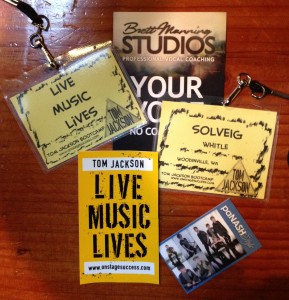As 2014 winds down, I find myself both excited and bemused to write a final music marketing blog about a Seattle indie artist I first met a few years ago. His newest project, Margaret, hot off the press this month, impresses me both musically as well as promotionally (although I hesitate to use that word, and he would probably cringe at it, too). One of the things that characterizes this artist is a fierce allegiance to the creative much more so than the commercial, but perhaps that is a large part of what makes this music project such a great example to discuss.
Watching the way the marketing and promotion of this album has unfolded since I first heard about the project in April of this year has taught me a lot, and I hope you take something from my analysis.
[Tweet “Good music and creativity are at the heart of successful music marketing. “]
Good music and creativity are at the heart of successful music marketing. I have never seen that embodied so clearly. The marketing is important, and executing well is important, but without good music, marketing only takes you so far. First and foremost, I believe that what drove Jason’s project was making good music that was meaningful to him.
What is good music? Ah well, that is a subjective thing. All I can say is, I know it when I hear it. And I know when I don’t. And so do you, and so do fans. Marketing is just the icing – it doesn’t disguise a bad cake, but it sure makes a good one taste better. Now, it is true that music is subjective, and there are many tastes, many genres, and many niches. However, some music is just well written and well-performed, and even if you don’t like the genre, you can appreciate the musicianship. Most importantly, good music moves the audience emotionally. Passion, combined with creativity and craft, make art that is magical.
[Tweet “Passion, combined with creativity and craft, make art that is magical.”]
The second most important thing to get from this article is that being flexible and listening to what your fans want from you will go a long way. If you start with a great live performance, and then get a clear message from your fans to release a CD, do what they say and they will buy it.
There’s a bit more to what Jason did with this project, however, so I’ve outlined below the 10 elements I think were most effective at propelling the project forward at such speed and with such success.





